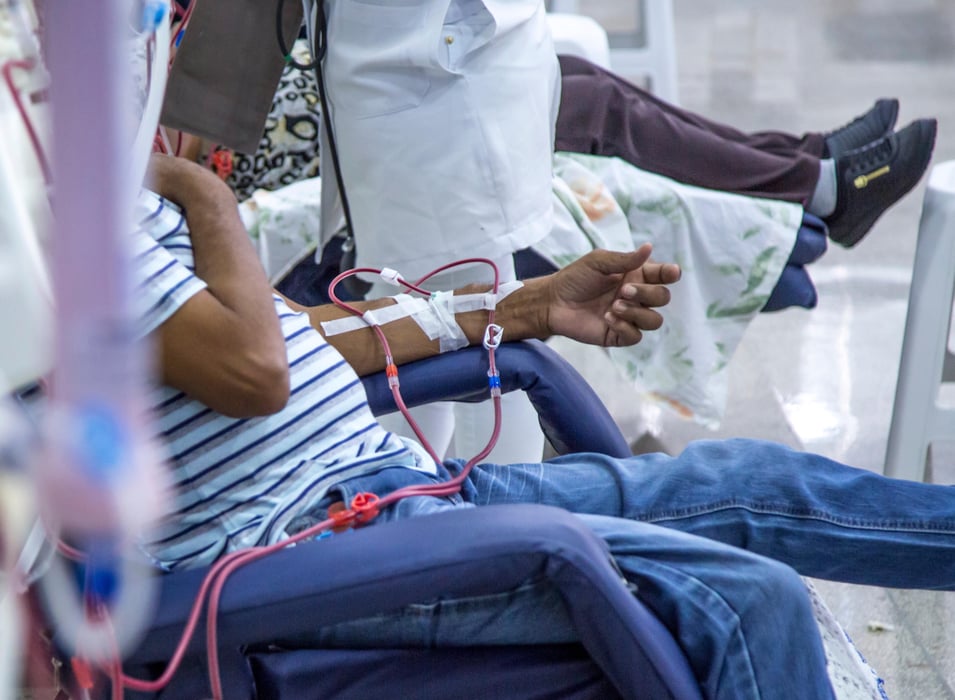Similar Management Seen for Dialysis-Requiring AKI, ESKD Patients

THURSDAY, Oct. 5, 2023 (HealthDay News) -- Patients with dialysis-requiring acute kidney injury (AKI-D) are prescribed the same dialysis as end-stage kidney disease (ESKD) patients, but some AKI-D patients have the potential to recover, according to a research letter published online Sept. 28 in the Journal of the American Society of Nephrology.
Ian E. McCoy, M.D., from the University of California San Francisco, and colleagues examined AKI-D patient management for adults who initiated outpatient hemodialysis. Initial dialysis prescriptions and the frequency of blood work and timed urine collection in the first 30 days were compared for incident AKI-D and incident ESKD patients. AKI-D patients were followed for three months or until recovery or death.
A total of 1,754 patients who initiated outpatient hemodialysis for AKI-D and 6,197 who initiated dialysis for ESKD were included in the study. The researchers found that 94 percent of AKI-D patients were initially prescribed dialysis three times/week, which was similar to ESKD patients (95 percent). Other components of dialysis were also similar, including duration, dialysate temperate, and sodium. Timed urine collections were completed in 28 percent of AKI-D patients during the first 30 days of outpatient dialysis compared with 16 percent in the ESKD group. Overall, 41 percent of AKI-D patients recovered during follow-up. For 70 percent of AKI-D patients, there were no changes to prescribed dialysis frequency or session duration. Dialysis frequency was weaned in 18 percent, and session duration was weaned in 9 percent of those who recovered; 72 percent discontinued dialysis with no change from the initial prescription.
"For those who have the potential to recover, remaining on dialysis may place them at unnecessary risk for heart disease, infection, organ damage, and death," McCoy said in a statement.
Several authors disclosed ties to industry.
Abstract/Full Text (subscription or payment may be required)
Related Posts
Pluvicto Approved for PSMA-Positive mCRPC
THURSDAY, April 14, 2022 (HealthDay News) -- The U.S. Food and Drug...
Aerobic Exercise Tied to Better Sleep, Mental Health in Perimenopausal Women
WEDNESDAY, Dec. 21, 2022 (HealthDay News) -- Aerobics training is tied to...
Don’t Let Heartburn Ruin Your Holiday Feast
SATURDAY, Dec. 18, 2021 (HealthDay News) -- Like Mr. Grinch, heartburn can crush...
History of Neurodevelopmental Disorders Linked to Seminoma
WEDNESDAY, May 10, 2023 (HealthDay News) -- Having a history of...
